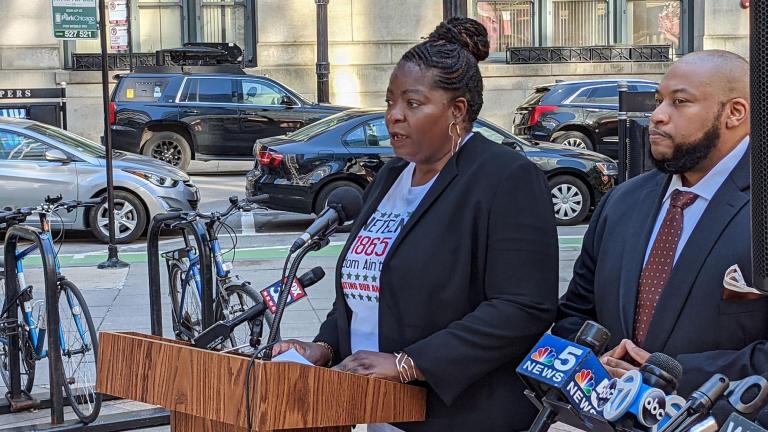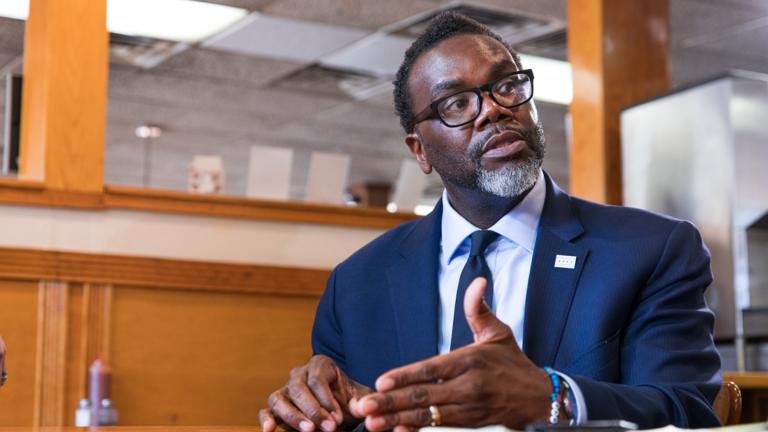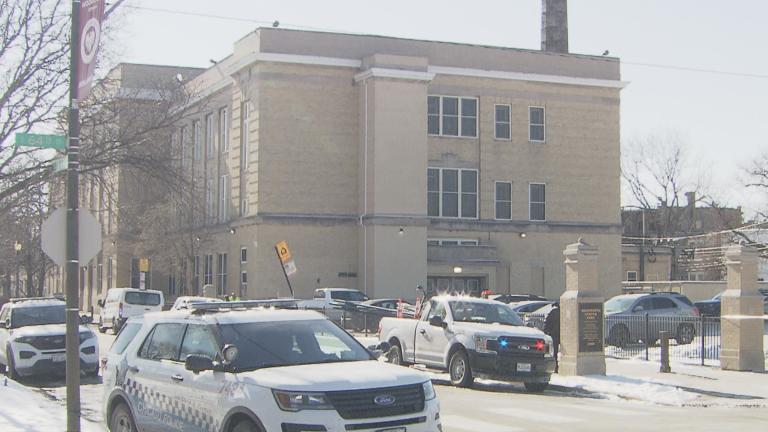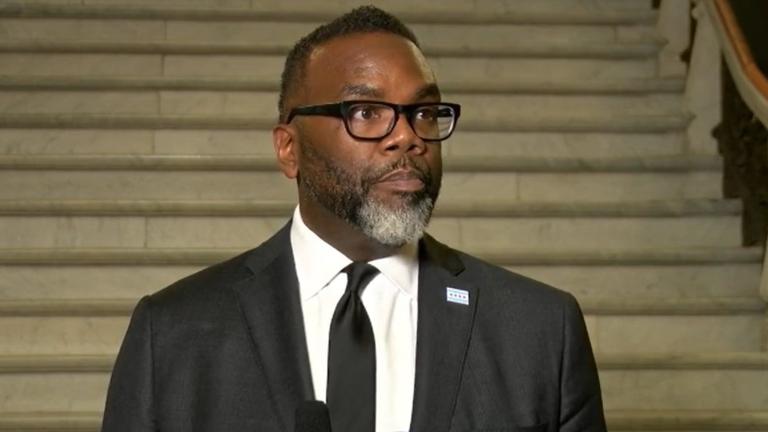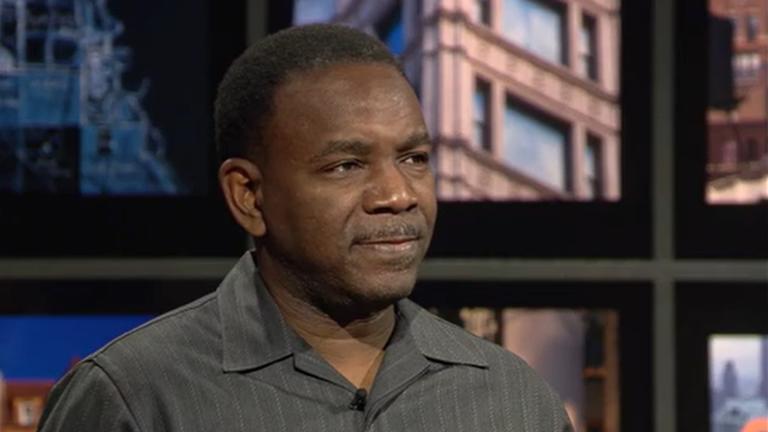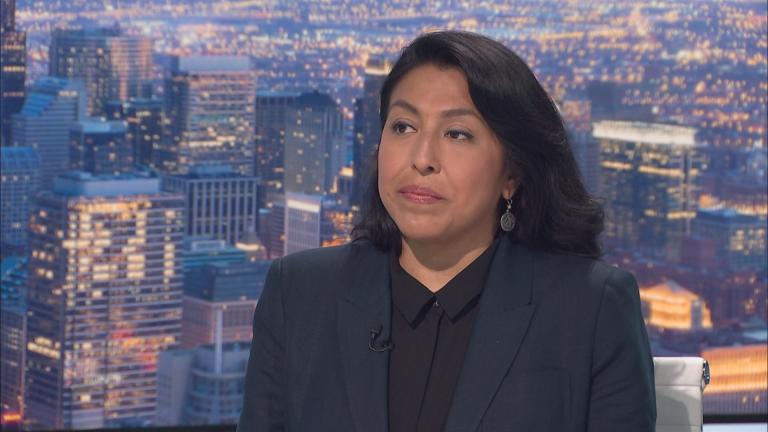 (Michael Izquierdo / WTTW News)
(Michael Izquierdo / WTTW News)
The Chicago City Council voted 16-31 Thursday against even considering an effort to ask voters to weigh in on whether Chicago should remain a sanctuary city during the March election, the latest effort to weaken or repeal Chicago’s protections for undocumented immigrants.
The special meeting called by Alds. Raymond Lopez (15th Ward), Anthony Beale (9th Ward) and David Moore (17th Ward) for Thursday was a last-ditch effort to put the non-binding question to voters on the March 19 ballot. The City Council is not scheduled to meet again until after the Jan. 2 deadline set by the Chicago Board of Election Commissioners.
The vote, which would have suspended the City Council’s rules to allow a final vote on the measure, came without debate, causing an infuriated Beale to jump to his feet and turn to his colleagues.
“What are you scared of?” Beale asked. “The truth?”
Chicago has been a self-proclaimed sanctuary city for more than 38 years, with five mayors vowing to shield all immigrants in Chicago from federal agents, regardless of whether they are citizens, permanent residents or asylum seekers.
However, efforts to weaken or repeal Chicago’s status as a sanctuary city gained steam amid the crisis posed by the arrival of nearly 26,000 migrants in the city on buses paid for by Republican Texas Gov. Greg Abbott as part of a concerted effort to damage President Joe Biden’s chances for reelection and divide Democratic voters.
Mayor Brandon Johnson has blamed the crisis facing Chicago on “right-wing extremists bent on sowing chaos and division in our city” and opposed efforts to put Chicago’s protections for undocumented immigrants up to a vote.
Read more: What Does It Mean That Chicago Is a Sanctuary City? Here’s What to Know
Efforts to care for those men, women and children — who are all in the country legally after requesting asylum after fleeing persecution and economic collapse — strained the city’s social safety net, ballooned the city’s budget shortfall and exacerbated tension between Chicago’s Black and Latino communities.
Chicago’s status as a sanctuary city does not require it to encourage immigrants to move to Chicago nor does the Welcoming City ordinance obligate officials to use taxpayer funds to care for immigrants in Chicago. The ordinance focuses on protections for undocumented immigrants, so it does not apply to any of the migrants.
Despite the fact that the city’s sanctuary city status has nothing legally to do with the migrants, Beale and Lopez demanded a nonbinding referendum on the city’s sanctuary city status, which they both have long opposed, on the March primary election ballot.
Caring for the migrants is likely to cost taxpayers $361 million through the end of the year, according to the most recent financial projections released by the mayor’s office. State and federal aid has covered only a fraction of those costs.
There are more than 14,000 migrants in city shelters as well as an additional 321 men, women and children sleeping at police stations across the city and at O’Hare International Airport.
Anti-immigrant sentiment has surged as the humanitarian crisis gripping the city has escalated, dismaying groups that have worked for decades to welcome immigrants to Chicago.
Before the vote, dozens of immigrant rights advocates warned alderpeople the push could put longtime Chicago residents at risk of deportation and in deep peril if former President Donald Trump is reelected.
Thursday’s vote will not end the debate over the city’s self-proclaimed status as a welcoming city. The arrival of the migrants has fundamentally changed the debate over what Chicago owes immigrants to the city, and frayed relations between Chicago’s Black, Latino and Asian communities.
Seven of the most conservative alderpeople have introduced legislation that would repeal the city’s Welcoming City ordinance, first approved in 2006 that ratified an executive order first issued by former Mayor Harold Washington. That ordinance has been amended twice, most recently in 2021 to ban Chicago police officials from cooperating with federal immigration agents in all cases.
None of those measures have been called for a vote.
If the city’s sanctuary city status is repealed, it would likely prompt many undocumented immigrants to return to life in the city’s shadows, unwilling to seek help from city officials for health care or protection from the Chicago Police Department for fear of exposing themselves or their families to deportation, according to immigrant right advocates.
A decision by the Chicago City Council to repeal the Welcoming City ordinance could also supercharge efforts by former President Donald Trump to crack down on undocumented immigrants if he wins a second term. The leading candidate for the Republican nomination for president, Trump is planning to round up undocumented immigrants and detain them in camps while they await deportation, according to reporting from the New York Times.
Members of the immigrant rights coalition urged Chicagoans to focus on what they said was the real threat to Chicagoans of all races: Trump-style politics fueled by white supremacy.
Thursday’s meeting was the second time Beale and Lopez have forced a special meeting in an attempt to put a question to voters.
That first session, on Nov. 2, devolved into chaos as Ald. Carlos Ramirez-Rosa worked to prevent at least 26 alderpeople from attending the meeting, preventing it from taking place. As Ald. Emma Mitts (37th Ward) attempted to enter the City Council meeting, Ramirez-Rosa blocked her.
Mitts said that interaction, which Ramirez-Rosa acknowledged was “disrespectful,” left her shaken.
Under fire, Ramirez-Rosa resigned as Johnson’s floor leader and chair of the City Council’s Zoning Committee, acknowledging he allowed tensions at the meeting “to get the better of me and act in a way unbecoming of a leader.”
Johnson has not filled either position.
Thursday’s lopsided vote to protect the city’s sanctuary city status is another indication that Ramirez-Rosa lost his position as the most powerful member of the Chicago City Council, which he held for just six months, as a result of a self-inflicted wound.
Contact Heather Cherone: @HeatherCherone | (773) 569-1863 | [email protected]

